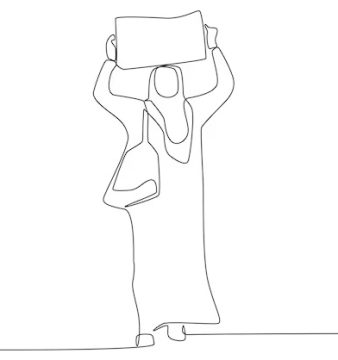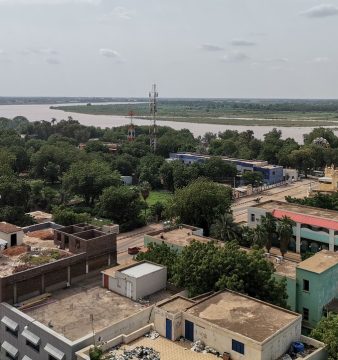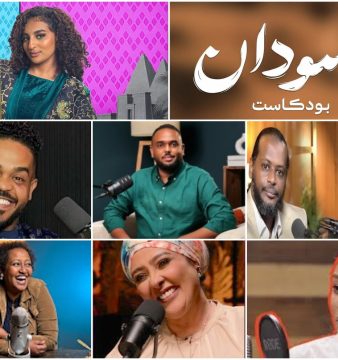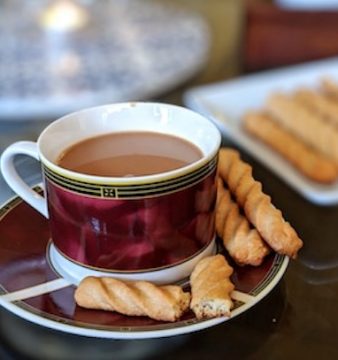Religion or Culture?
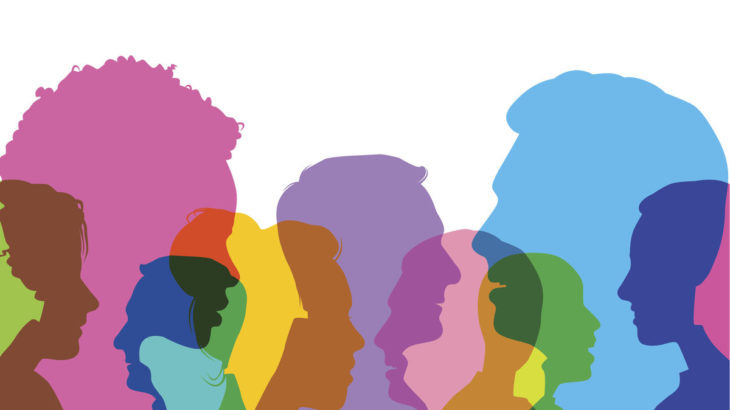
Sudan, as we know well, is a conservative country. It was something I grew up knowing and never questioned. It was not something that I had to learn or was taught to me in school or through books but was instilled in me as a part of my upbringing.
I was born in the UK and lived there for many years. However, we regularly came to Sudan for our holidays especially as our parents did not want us to get influenced by Western culture or grow up without a sense of belonging. Time and again they emphasised that we are Sudanese, our home country is Sudan, and that our stay in the UK was only temporary.
During our holidays in Sudan, I would notice how quickly our daily outfits changed from shorts and crop tops to jeans and long-sleeved tops, and from no scarf whatsoever to a scarf around the neck and even if it wasn’t covering the hair, it had to be present. I didn’t mind the women on the streets who wore black cloaks or veils. What did catch my attention, however, were the changes I was making. Although I was young at the time, I did notice the changes that were occurring within me. I was still the same person but I didn’t understand why I was dressing differently. I did not know the definition of ‘culture’ back then so I couldn’t attribute it to the changes I was making. Nevertheless, I took it in my stride and accepted that when in Sudan, dress Sudanese.
I remember that there would always be some relative’s wedding when we visited. Going to the saloon to get our hair done became a ritual. Though the walk to the saloon was very short, it was always a nightmare because of the way everyone stared at me. The constant and unyielding stares made me feel that there was something wrong with me. It took me years to realise the problem wasn’t with me but with them. For years, I would tighten the scarf and wear looser clothes. When that wasn’t enough to keep their eyes off me, I turned to the abaya but even that did not work. I could never understand what they were staring at and what was eye-catching. I even considered covering my face as well so as to walk peacefully.
It took me years to realise that the problem wasn’t my clothes but my being as a woman, visualised as an object rather than a person.
As I grew older, I became more conscious of my clothing. With people judging me by my clothes and headscarf, it was only natural that I took caution in what I wore. And as my hips got thicker and my body rounder, my family started nagging about my clothes to such an extent that I often chose to stay home instead of facing the agony of convincing everyone that my clothes were appropriate. I would also be asked to wear a bigger or tighter scarf if my hair were showing in the front. But while they were being stern about my clothes choice, I noticed that they never asked if I was praying on time or if I was fasting on days besides Ramadan, or if I was praying extra during the late nights. They never asked if I was reading the Quran on a regular basis either. Islam focuses on and gives equal importance to these things, yet they seemed to turn a blind eye to it and turned all their attention to how I dressed. It got me thinking whether their point of view was religious or cultural.
To stop them from endlessly nagging me, I started wearing clothes to please them and the society, like tighter or bigger scarves. However, I felt a contradiction. When I travelled, I was no longer obligated to wear loose clothes or to completely cover my hair. It was as if I was set free. I felt comfortable wearing skinny jeans with a loose scarf around my neck revealing my collar bones. I felt okay having my ankle and part of my calf out in public. Everything was okay.
So what was limiting my wardrobe while we were in Sudan? Why are these limits imposed on women’s clothes? Is it because of our religion or culture? It was a question that never truly left my mind and would always pop up at different times, places and occasions.
It also occurred to me that during my mother’s youth, things were different. She would tell me stories of how they dressed just like in the western countries. You could count those who wore scarves on your fingers, she said. The black and white photos I saw of her and her sisters, attested to that fact. Mini dresses, short-sleeved tops and hair down was the norm in those days, and it was not just to girl-parties or house gatherings but they would go everywhere in those clothes. It’s hard to believe that the streets we now roam, in constant fear of our own life and body, are the same streets they roamed decades ago, with not an ounce of fear. They didn’t fear society especially men staring or cat-calling, and never really felt uncomfortable.
This further strengthened my point that how you dress is greatly influenced by how those around you do and in addition, that there is no fine line between religion and culture. They might be separate but are intermingled together and one dictates the other.
 Saria Osman El-Amin is a 22-year-old recent graduate of the Faculty of Medicine, University of Khartoum (Class of 2018). Currently based in Khartoum, Saria is a part-time English and maths teacher. She values time alone a lot, and without it, she feels exhausted and unable to function. She enjoys reading books, travelling, going out with friends, having a laugh and of course, eating good food.
Saria Osman El-Amin is a 22-year-old recent graduate of the Faculty of Medicine, University of Khartoum (Class of 2018). Currently based in Khartoum, Saria is a part-time English and maths teacher. She values time alone a lot, and without it, she feels exhausted and unable to function. She enjoys reading books, travelling, going out with friends, having a laugh and of course, eating good food.

